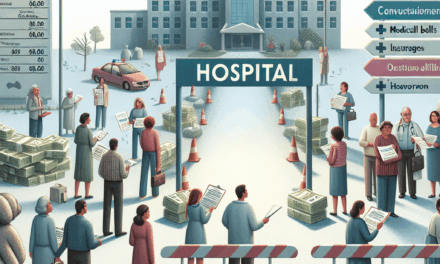Trump Appoints RFK Jr. as Head of Health and Human Services
The appointment of Robert F. Kennedy Jr. as the head of the Department of Health and Human Services (HHS) by former President Donald Trump has sparked significant debate and interest across the political and public health landscapes. This decision, marked by its controversial nature, brings to the forefront a myriad of issues related to public health policy, environmental advocacy, and political strategy. This article delves into the implications of this appointment, exploring the potential impacts on health policy, the role of environmental advocacy in public health, the political dynamics at play, and the broader societal reactions.
Background of Robert F. Kennedy Jr.
Robert F. Kennedy Jr., a prominent environmental attorney and activist, is a member of the storied Kennedy family, known for their significant contributions to American politics and public service. His career has been marked by a strong focus on environmental issues, particularly in relation to water safety and pollution. Kennedy has been a vocal critic of certain public health policies, particularly those related to vaccinations, which has made his appointment to HHS a point of contention.
Kennedy’s work with the Natural Resources Defense Council and his leadership at the Waterkeeper Alliance highlight his commitment to environmental causes. His legal battles against large corporations for environmental violations have earned him a reputation as a staunch defender of ecological integrity. However, his controversial stance on vaccines, which he argues are not sufficiently tested for safety, has drawn criticism from the scientific community.
Despite these controversies, Kennedy’s appointment by Trump can be seen as a strategic move to align with certain voter bases that are skeptical of mainstream scientific consensus on vaccines. This decision also reflects Trump’s tendency to appoint individuals who challenge established norms and bring a different perspective to governmental roles.
Implications for Health Policy
The appointment of RFK Jr. to lead HHS could have significant implications for health policy in the United States. As the head of HHS, Kennedy would oversee a vast array of programs and initiatives that impact the health and well-being of millions of Americans. His leadership could influence policies related to healthcare access, public health initiatives, and regulatory oversight.
One potential area of impact is the regulation of pharmaceuticals and vaccines. Kennedy’s skepticism towards vaccines could lead to changes in how vaccines are approved and monitored, potentially affecting public confidence in vaccination programs. This could have far-reaching consequences for public health, particularly in the context of ongoing efforts to combat infectious diseases.
Additionally, Kennedy’s environmental advocacy could shape policies related to environmental health. His focus on reducing pollution and protecting natural resources could lead to increased efforts to address environmental factors that contribute to health issues, such as air and water quality. This could result in stricter regulations on industries that are major sources of pollution, potentially leading to improved health outcomes for affected communities.
- Potential changes in vaccine policy and public perception
- Increased focus on environmental health and pollution control
- Impact on healthcare access and regulatory oversight
Environmental Advocacy and Public Health
RFK Jr.’s appointment brings a unique perspective to the intersection of environmental advocacy and public health. His career has been dedicated to addressing environmental issues, and his leadership at HHS could lead to a greater emphasis on the role of environmental factors in health outcomes.
Environmental health is a critical component of public health, as exposure to pollutants and environmental hazards can lead to a range of health problems, including respiratory diseases, cancer, and developmental disorders. Kennedy’s focus on reducing pollution and protecting natural resources aligns with efforts to address these issues and improve public health outcomes.
One potential area of focus could be the reduction of air and water pollution, which are major contributors to health problems in many communities. Kennedy’s advocacy for clean water and air could lead to increased efforts to regulate industries that are major sources of pollution, potentially resulting in improved health outcomes for affected populations.
Additionally, Kennedy’s emphasis on environmental justice could lead to policies that address health disparities in marginalized communities. These communities often bear a disproportionate burden of environmental hazards, and addressing these issues could lead to more equitable health outcomes.
- Focus on reducing air and water pollution
- Addressing health disparities through environmental justice
- Potential for improved health outcomes through environmental policies
Political Dynamics and Strategic Implications
The appointment of RFK Jr. as head of HHS is not only significant for its potential policy implications but also for its political dynamics. This decision reflects Trump’s strategic approach to governance, which often involves appointing individuals who challenge established norms and bring diverse perspectives to governmental roles.
Kennedy’s appointment can be seen as a move to appeal to certain voter bases that are skeptical of mainstream scientific consensus on vaccines and other public health issues. This decision aligns with Trump’s broader strategy of challenging established institutions and promoting alternative viewpoints.
Additionally, Kennedy’s appointment could have implications for the political landscape, as it may influence public perception of health and environmental policies. His leadership at HHS could lead to increased scrutiny of public health initiatives and regulatory oversight, potentially impacting the political discourse around these issues.
Furthermore, Kennedy’s appointment could have implications for the broader political landscape, as it may influence public perception of health and environmental policies. His leadership at HHS could lead to increased scrutiny of public health initiatives and regulatory oversight, potentially impacting the political discourse around these issues.
- Appeal to voter bases skeptical of mainstream science
- Impact on political discourse around health and environmental policies
- Potential for increased scrutiny of public health initiatives
Societal Reactions and Public Perception
The appointment of RFK Jr. as head of HHS has elicited a range of reactions from various segments of society. Public perception of this decision is shaped by Kennedy’s controversial stance on vaccines, his environmental advocacy, and the broader political context.
Among supporters, Kennedy’s appointment is seen as a positive step towards addressing environmental health issues and challenging established norms in public health policy. His focus on reducing pollution and protecting natural resources aligns with the values of many environmental advocates and those concerned about the impact of environmental factors on health.
However, critics of the appointment express concern about Kennedy’s skepticism towards vaccines and the potential impact on public health initiatives. There is apprehension that his leadership could undermine efforts to promote vaccination and other public health measures, potentially leading to negative health outcomes.
The broader societal reaction to Kennedy’s appointment reflects the ongoing debate over the role of science and evidence-based policy in public health. This decision highlights the tension between different perspectives on health and environmental issues, and the challenges of balancing diverse viewpoints in policymaking.
- Support for environmental health focus
- Concerns about vaccine skepticism and public health impact
- Reflection of broader societal debate on science and policy
Conclusion
The appointment of Robert F. Kennedy Jr. as head of the Department of Health and Human Services by Donald Trump is a decision that carries significant implications for health policy, environmental advocacy, and political dynamics. Kennedy’s leadership could influence a range of issues, from vaccine policy to environmental health, and his appointment reflects broader societal debates over the role of science and evidence-based policy in public health.
While Kennedy’s focus on environmental issues aligns with efforts to address health disparities and improve public health outcomes, his controversial stance on vaccines raises concerns about the potential impact on public health initiatives. The political dynamics surrounding his appointment highlight the strategic considerations at play, as well as the challenges of balancing diverse perspectives in policymaking.
Ultimately, the appointment of RFK Jr. as head of HHS underscores the complexity of public health policy and the need for thoughtful consideration of the diverse factors that influence health outcomes. As Kennedy assumes this role, the implications of his leadership will continue to be a topic of significant interest and debate.




